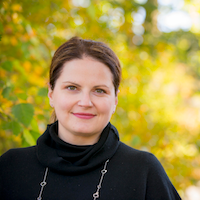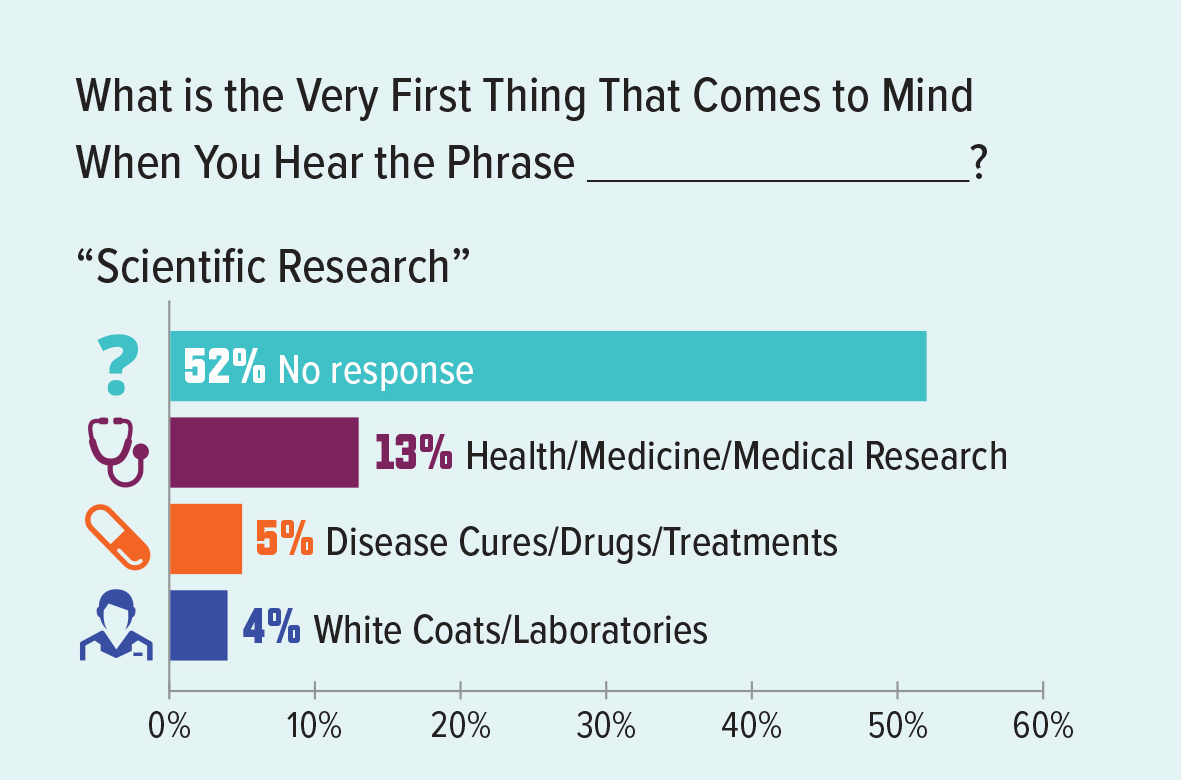 Misunderstandings and willful denial about our changing climate have had real impacts on policy decisions, and the consequences of our inability or unwillingness to act are real. Just last week we got news that Easter Island is eroding due to rising sea levels. It can be tempting to oversimplify the problem and vilify the groups we feel are responsible, but as a new report on Perceptions of Science in America from the American Academy of Arts and Sciences reminds us, this stuff is complicated.
Misunderstandings and willful denial about our changing climate have had real impacts on policy decisions, and the consequences of our inability or unwillingness to act are real. Just last week we got news that Easter Island is eroding due to rising sea levels. It can be tempting to oversimplify the problem and vilify the groups we feel are responsible, but as a new report on Perceptions of Science in America from the American Academy of Arts and Sciences reminds us, this stuff is complicated.
The report is the product of the American Academy’s Public Face of Science initiative. They did not collect the data themselves but pulled it together from various sources to help them, and us, understand “how trust in science is shaped by individual experiences, beliefs, and engagement with science.” The project description highlights the interdisciplinary teams necessary to tackle these challenges, including partnerships between scientists, communication professionals, and the arts.
Some of the results in the report are frustrating. The fact that 52% of respondents had “no response” to the question “what is the very first thing that comes to mind” when you hear ‘scientific research’” confounds me. I know it’s been years since many of these adults were in a science classroom, but how are they unaware of the research that infuses their everyday lives, from the medicine they take, to the electricity they consume, to the well-being of the residents at their local zoos? On the bright side, it is a reminder that most people do not have pre-established perceptions of science. I wonder how students would respond to this question.
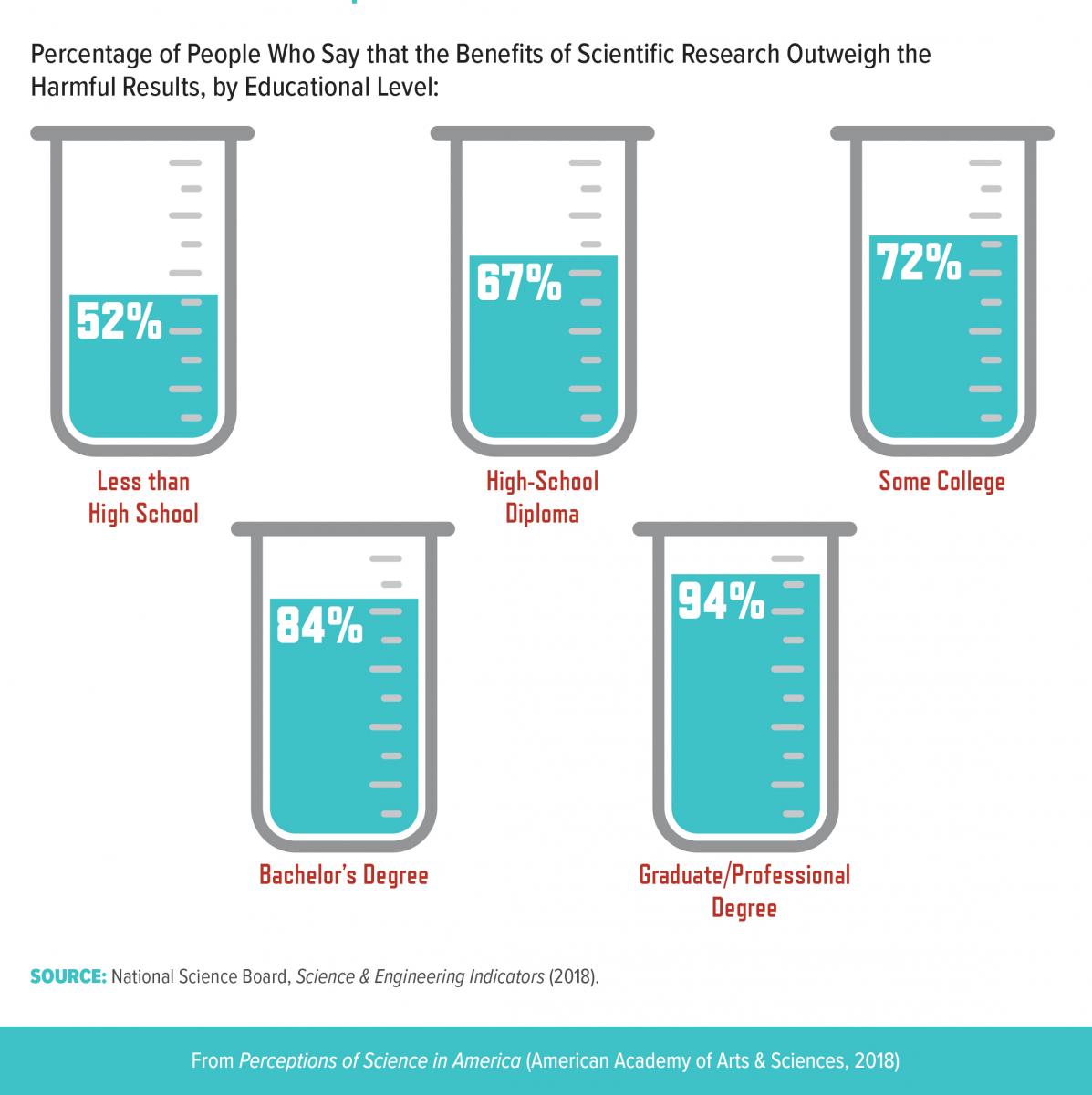 Reinforced in the report is that education matters when it comes to perceptions of science. The more education a person has, the more likely they are to express a “great deal of confidence” in scientific community leaders and to agree that when it comes to science, benefits outweigh costs. On the surface this data seems to support a deficit-model way of thinking, in which more science knowledge is correlated with more positive views of science. However, the report references other findings that suggests there is “only a small positive relationship between science knowledge and perception.” So while facts matter, the Academy’s conclusion that the facts alone aren’t enough, is reasonable.
Reinforced in the report is that education matters when it comes to perceptions of science. The more education a person has, the more likely they are to express a “great deal of confidence” in scientific community leaders and to agree that when it comes to science, benefits outweigh costs. On the surface this data seems to support a deficit-model way of thinking, in which more science knowledge is correlated with more positive views of science. However, the report references other findings that suggests there is “only a small positive relationship between science knowledge and perception.” So while facts matter, the Academy’s conclusion that the facts alone aren’t enough, is reasonable.
The Academy suggests that new polling and research on this topic should begin using the expanded definition of science literacy suggested by the National Academies of Science, Engineering, and Medicine (the “other” Academy), one that includes “understanding of scientific processes and practices, familiarity with how science and scientists work, a capacity to weigh and evaluate the products of science, and an ability to engage in civic decisions about the value of science.” This recommendation aligns well with the renewed interest in scientific practices across K–12. Perhaps if more people internalized this comprehensive definition of science, we would see genuine gains in everything from awareness of and trust in the scientific enterprise to acceptance of the scientific consensus in “controversial” topics.
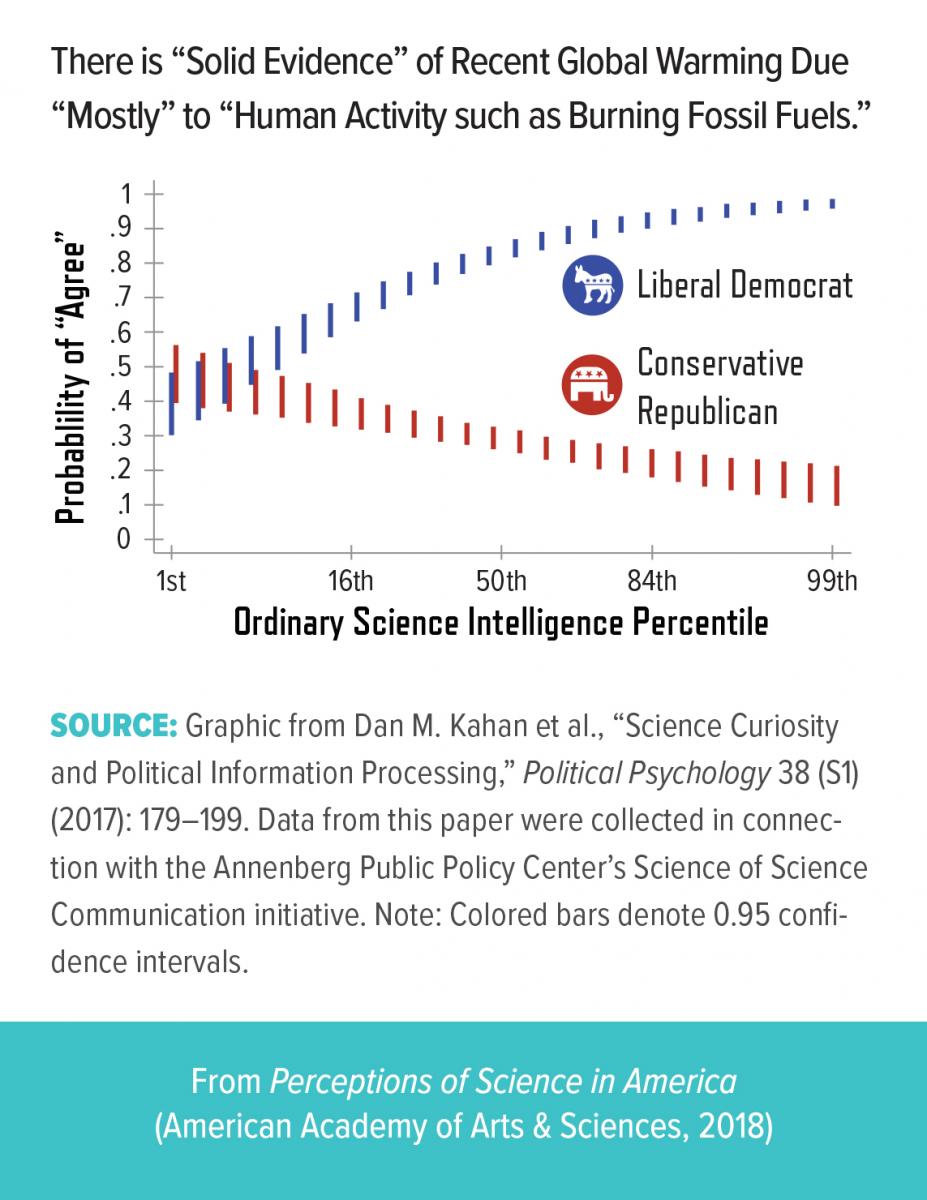 Though the data presented does suggest that one particular area will be a tougher nut to crack, even given a broader definition of science literacy. Data correlating “ordinary science intelligence” (as measured by a standard nine-question test), political ideology, and tendency to agree with the statement “there is ‘solid evidence’ of recent global warming due ‘mostly’ to ‘human activity such as burning fossil fuels’” suggests that conservative Republicans become less likely to agree with the scientific consensus on climate change the more educated they are. Though interestingly, conservatives with a higher curiosity about science “for personal pleasure” were more likely to agree.
Though the data presented does suggest that one particular area will be a tougher nut to crack, even given a broader definition of science literacy. Data correlating “ordinary science intelligence” (as measured by a standard nine-question test), political ideology, and tendency to agree with the statement “there is ‘solid evidence’ of recent global warming due ‘mostly’ to ‘human activity such as burning fossil fuels’” suggests that conservative Republicans become less likely to agree with the scientific consensus on climate change the more educated they are. Though interestingly, conservatives with a higher curiosity about science “for personal pleasure” were more likely to agree.
However, the report reminded me that science denial is not limited to one demographic group. A younger American is more likely than an older American to agree that climate change is man-made but less likely to view childhood vaccines as safe. Political ideology and age are the strongest predictors of view regarding climate change, but education or science knowledge was the strongest predictive factor when it came to came to GMO safety. For me, this was the most important takeaway: there is no single group you can point to and say, these are the people who are “anti-science.” I knew this, but seeing it borne out in the data was still a bit of an eye opener.
My biggest criticism of the report is the lack of detailed analysis of evolution acceptance, which I wish were included alongside those of climate change, GMOs, and vaccine safety. In the same Pew Research Center study cited in the report on the factors influencing controversial issues, age and religion were the strongest factors associated with views on evolution, so why not include it? Additional data is available, thanks to a Gallup poll and a full study on evolution from Pew, but it would have been helpful to see it synthesized and included in this otherwise comprehensive snapshot of science attitudes in America.
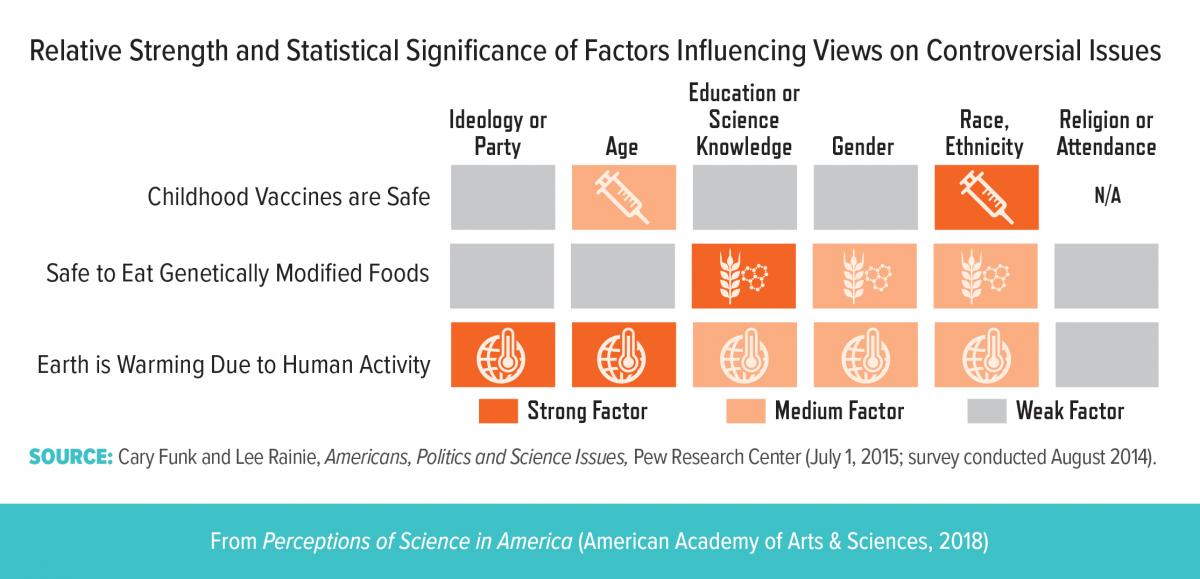 Overall the Academy does us a service by drawing together data from several groups and highlighting some important directions for future research. I especially applaud their call for more studies into how perceptions of science are affected by not just political views, gender, age, or education, but other aspects of identity including race, socioeconomics, and access to high-quality content. Data from our Science Booster Club Program suggest these factors are extremely important and require nuanced and local solutions.
Overall the Academy does us a service by drawing together data from several groups and highlighting some important directions for future research. I especially applaud their call for more studies into how perceptions of science are affected by not just political views, gender, age, or education, but other aspects of identity including race, socioeconomics, and access to high-quality content. Data from our Science Booster Club Program suggest these factors are extremely important and require nuanced and local solutions.
Think you have a handle on how the public perceives science? Test your knowledge on the subject, by taking the quiz based on the report (I bet you will be surprised at how much you don’t know!) If you’re interested in sharing the finding, figures from the report are available as JPEG, PDF, and PPT. To learn more about the American Academy of Arts and Sciences’ Public Face of Science project or request physical copies of the report for use in classrooms or to share with your community, you can contact the science policy team at sciencepolicy@amacad.org.

